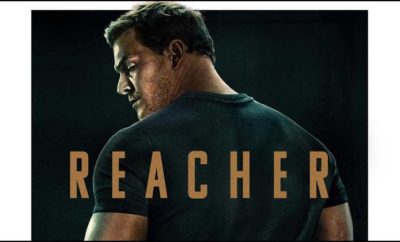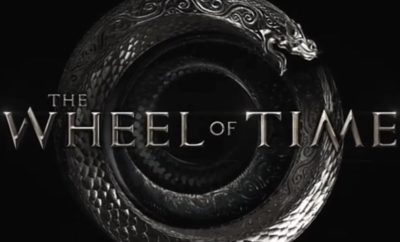Movie Reviews
A United Kingdom
By: Arlene Allen
The latest from director Amma Asante (Belle, A Way of Life) brings to the screen the story of Seretse Khama, the last king and first president of Bechuanaland (modern day Botswana) and the love of his life, Ruth Williams, a white woman from Great Britain. Based on a true story, this is so much more than a period piece or an interracial romance. What Asante and fantastic performances by David Oyelowo and Rosamund Pike deliver is a slice of hope, a rallying cry of unity and proof that sometimes the good guys really do win (by a landslide).
Khama (Oyelowo, of Selma and Nightingale) is the heir to the throne of Bechuanaland, sent to England to study law. Shortly before he is summoned to return to his homeland by his uncle, the regent, he meets Ruth Williams (Pike, of Gone Girl and Jack Reacher) at a mission dance. It is love at first sight and I’ve never seen it sold so well – the chemistry between Oyelowo and Pike is palpable. They are two intelligent, bold people and they need to be as their courtship draws scorn, strife and political upset on two continents. In 1947 Great Britain the racism is not unexpected, but what is happening in Bechuanaland is shocking and appalling to all. The political hierarchy of Great Britain, personified in Alistair Canning (played by Jack Davenport who has a knack for playing pompous British asses) and in the government of South Africa, have just developed the system of apartheid.
Just as the love story is not over-played, neither is the political machinations – although there are many. Remaining historically correct while condensing years into a one hour and fifty-one minute movie is no mean feat. Keeping the pacing flowing as well as entertaining is a testament to both director and writer Guy Hibbert. Ruth, with her unfailing determination, courage and love and her steadfast refusal to play to white politics wins over her husband’s people. The scene that underscored this for me is when Ruth, in labor with her first child and separated from Seretse while being miles away from the nearest hospital, drives herself across the desert while fighting off unconsciousness.
Seretse is trapped in England, banished by the government of Great Britain and his own people (so he thinks) from Bechuanaland, does some winning over of his own – a cynical but honest journalist and a young rising lawyer. Apparently, his story moved the people of Great Britain as well for it is implied it is promised aid for Seretse, Ruth and their people that helped Winston Churchill become Prime Minister again in 1951.
There are decidedly painful moments in the film to watch, as well as tender. But although it is the story of a nation’s rise to independence, it is Seretse and Ruth who exemplify everything people need to achieve true independence. “No man is free who is not master of himself,” Seretse says. Clearly, he and Ruth were masters of quite a lot. It is encouraging to see a movie about love and about race that is for the most part unsentimental, historically and politically accurate. It was beautifully shot in the UK and Botswana (on the first day of filming, 3000 native Botswanans turned up to be extras on the set) by cinematographer Sam McCurdy and is a credit to everyone involved.
Final analysis: If you are feeling depressed and dragged under by current events, I highly recommend seeing this film in which perseverance pays off and the good guys win. (A)




You must be logged in to post a comment Login